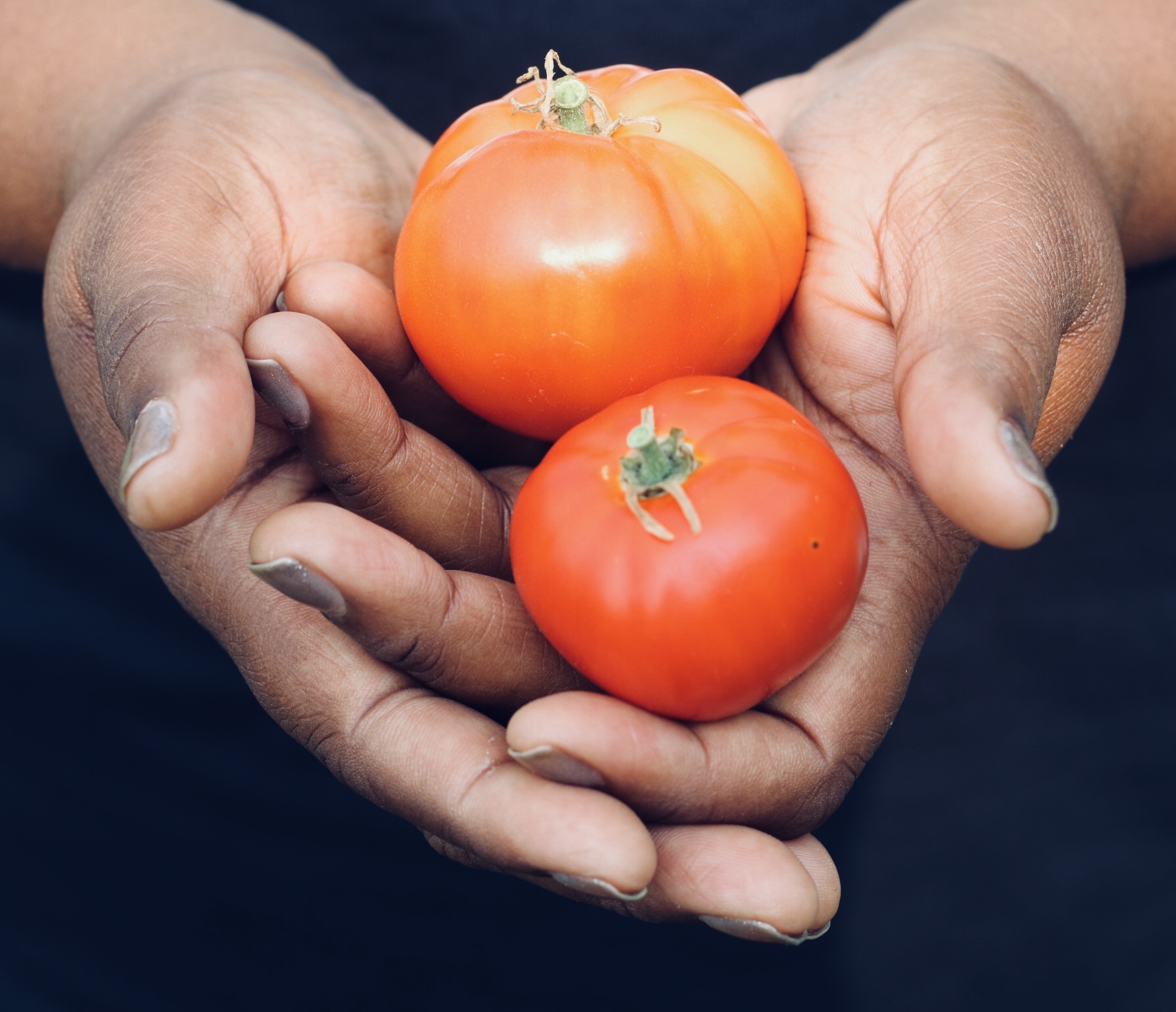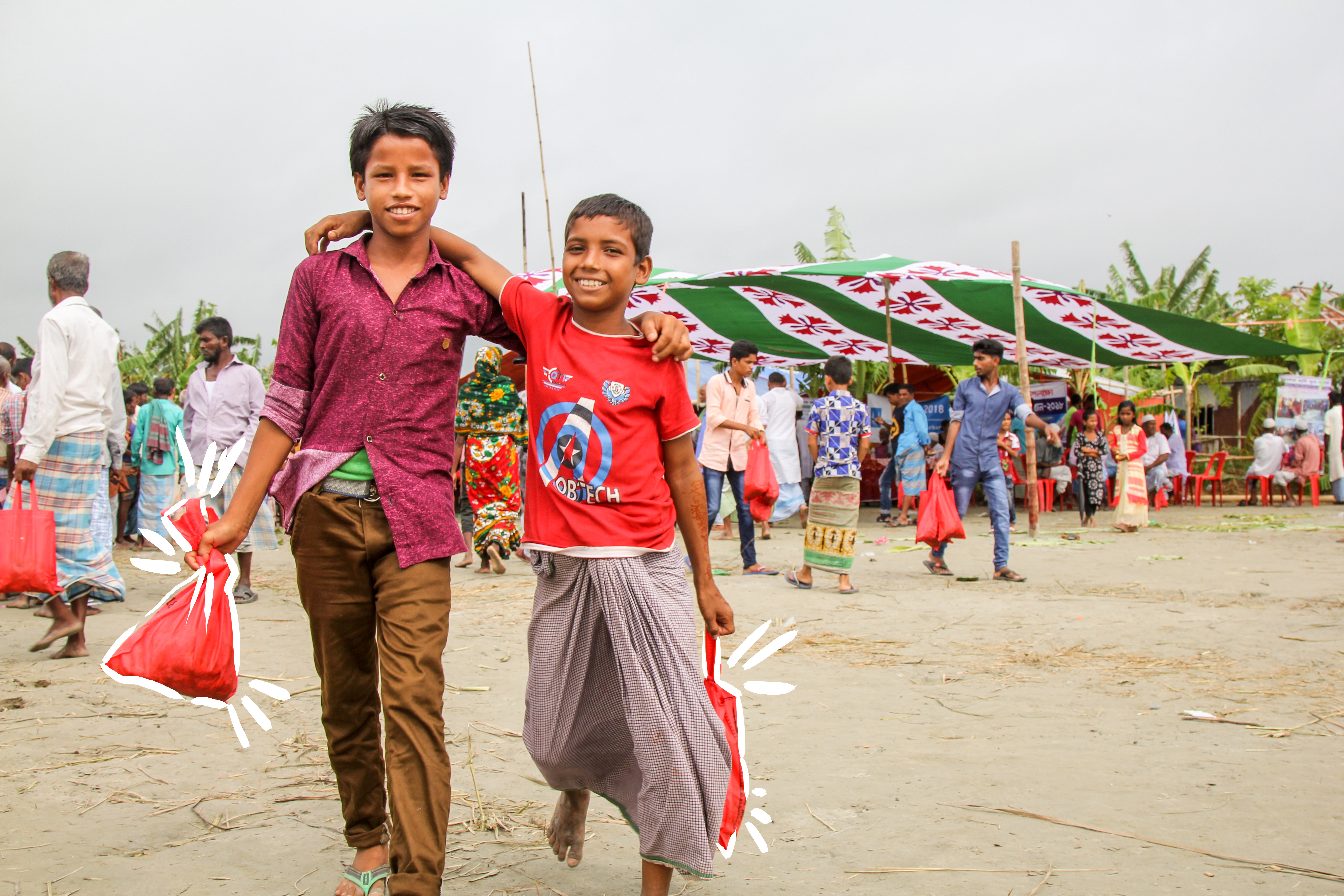Hurricane Katrina: Islamic Relief USA’s First Big U.S. Disaster Relief Effort.
When Hurricane Katrina hit the Gulf Coast on August 29, 2005, Elouise Kensey was traveling.
Her home in New Orleans was destroyed, but she called herself lucky.

“I have custody of my seven grandchildren, and had we stayed somebody would have died,” she told Islamic Relief workers
after the storm. “A tree fell on the house. We were lucky, blessed
, however you want to call it.”
The Category 5 hurricane devastated large parts of Louisiana, Mississippi and Alabama, and its floodwaters surged right over and through the levees protecting New Orleans. More than 1,800 people were killed. Hundreds of thousands were left homeless, including Kensey and her family.
Hurricane Katrina relief was Islamic Relief USA’s first major U.S. disaster relief effort. To coordinate aid, IRUSA quickly opened an office in Baton Rouge and hired staff members. New coordinator Ruben Vaughan headed to the site within a week after the storm hit, and remained on-site for more than two years to serve the community, with a small staff and volunteers. During that time, IRUSA provided more than $3 million in assistance, helping more than 60,000 people in Louisiana, Mississippi, and Texas. Kensey and her family received food, blankets, kitchen supplies and hygiene items.
“Islamic Relief … helped me a lot,” she said. “A couple of times I was this far from not having food,” she added, pinching her fingers together. “And it came right to the door from you guys. And it was just overwhelming.”
The early days of Islamic Relief’s response involved a complex effort to coordinate with FEMA and other organizations and to set up the infrastructure to serve the area, while also beginning to distribute urgently needed items. IRUSA set up a warehouse in Baton Rouge to serve as a pantry and distribution center. The facility distributed donations from FEMA’s warehouse, as well as more than 2 million pounds of food and supplies from America’s Second Harvest Food Bank, and hundreds of thousands of pounds of supplies such as hygiene kits from the Church of Jesus Christ of Latter-day Saints. The team worked to find anything that was needed, driving all over the region to track down necessities and deliver heavy boxes through the stifling heat, mosquitoes and grime.
“This would often mean that [coordinator Vaughan] had to find, buy and deliver an oxygen tank, a generator, or anything that was not normally stocked in any warehouse,” Paula Hankins wrote in “Dismantling Dismay,” which details some of IRUSA’s work in the Gulf Coast. “The entire team was extremely busy and on the run every day of the week. … When they returned to Islamic Relief office in the evening, they were dead tired, and dripping with sweat.”

It was a month before NGOs were allowed to enter New Orleans. Vaughan and the other team members thought they were prepared for what they’d find in the devastated city, but they were shocked by the level of devastation and misery, the streets full of toxic slime from spilled waste and gasoline, and the stench of death in the air. Staff redoubled their efforts to provide relief, and spent hours just listening and talking to provide emotional support to traumatized survivors. They set up a central distribution center, where 2,500 people received food and supplies in just two weeks.
Over the course of the first year, IRUSA’s assistance included the following:
• 1.5 million pounds of food distributed to people in New Orleans and Baton Rouge
• Clinic restored to service in Biloxi, MS
• Assisted evacuees taking shelter in mosques in Baton Rouge, along with assistance with transportation, shower facility and storage for belongings
• School tuition, supplies and equipment for evacuee students
• Assistance rebuilding homes
• Bedding, kitchen sets and hygiene kits for evacuees
“The relationship with those that benefit from this effort is truly beautiful because there is love involved,” Vaughan said at the time. “Some evacuees, after receiving our services, volunteer in our events to give back to their communities and bond closer to this compassionate effort.”
Kensey’s oldest grandson, a high school senior, was among them. After seeing the help Islamic Relief gave to their family, he began volunteering with the organization.
“Thank you! Thank you,” Kensey said at the time. “Just knowing there are people like you to help us was amazing.”
IRUSA’s work for Hurricane Katrina later inspired the formation of the Disaster Response Team, which now assists Americans in emergencies from coast to coast.
Donated Clinic is ‘Gift that Keeps Giving’
A decade after Islamic Relief USA donors provided a new building for a health-care center destroyed by Hurricane Katrina, the building is still serving the community.

“The gift that keeps giving,” Coastal Family Health Center CEO Angelique Greer said with a laugh.
When Katrina slammed into the Gulf Coast, it badly damaged the clinic in East Biloxi, Mississippi.
“Water and mud and stuff was up over the top of it, and everything in that building was ruined,” Joe Dawsey—director at the time—said in a 2007 article in Nonprofit Quarterly.
The clinic was dedicated to serving anyone in need of care, whether or not the patients could pay. It served mainly homeless and low-income patients. Now, after the storm, there was a sudden increase in need for the clinic’s care—and nowhere to care for them. Islamic Relief USA donors gave staff back a place to serve their community: a double-wide mobile home to be converted quickly into a clinic.
“Immediately after the storm, we were providing services that were unbilled—just trying to provide basic services for patients who were showing up,” Greer said. “We did use that double wide mobile facility for quite a long time. It was an excellent facility.”
Dawsey said at the time, “Thanks to the generous donation of the Islamic Relief double-wide clinic and equipment, we have been able to serve approximately 7,500 patients. We appreciate all of the help given by Islamic Relief to Coastal and the people of the Mississippi Gulf Coast.”
Within a few years, the health center rebuilt and no longer needed the trailer, so they paid it forward by giving it to a school clinic, where it’s still in use.
“Now it provides space for medical and dental care to students in a rural community about 90 miles northeast of Biloxi in Leakesville. And so it remains very active.”
Greer said it now provides about 1,500 patient services per year, including care for 400 children.
“Those services wouldn’t be available if that facility wasn’t there,” she said.
Greer said she wanted to share with IRUSA donors how much the gift meant to her and her predecessor, Dawsey. “Our sincere and deepest appreciation for the support,” she said. “Please convey our appreciation — how much the Islamic Relief support meant to us. Our recovery was dependent upon the benevolence of folks such as the Islamic Relief organization, and we just wouldn’t have been able to make it had it not been for you guys, especially right here in Biloxi.”
Learn more about our other USA Programs by clicking here, and you can learn more DRT by clicking here



